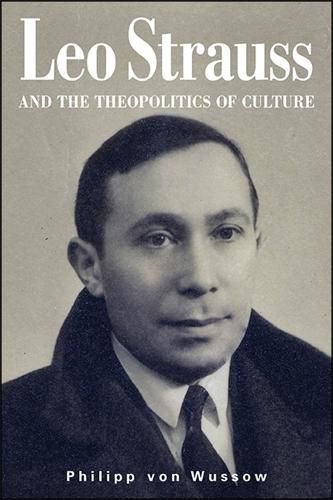Readings Newsletter
Become a Readings Member to make your shopping experience even easier.
Sign in or sign up for free!
You’re not far away from qualifying for FREE standard shipping within Australia
You’ve qualified for FREE standard shipping within Australia
The cart is loading…






2020 CHOICE Outstanding Academic Title
In this book, Philipp von Wussow argues that the philosophical project of Leo Strauss must be located in the intersection of culture, religion, and the political. Based on archival research on the philosophy of Strauss, von Wussow provides in-depth interpretations of key texts and their larger theoretical contexts. Presenting the necessary background in German-Jewish philosophy of the interwar period, von Wussow then offers detailed accounts and comprehensive interpretations of Strauss’s early masterwork, Philosophy and Law, his wartime lecture German Nihilism, the sources and the scope of Strauss’s critique of modern relativism, and a close commentary on the late text Jerusalem and Athens. With its rare blend of close reading and larger perspectives, this book is valuable for students of political philosophy, continental thought, and twentieth-century Jewish philosophy alike. It is indispensable as a guide to Strauss’s philosophical project, as well as to some of the most intricate details of his writings.
$9.00 standard shipping within Australia
FREE standard shipping within Australia for orders over $100.00
Express & International shipping calculated at checkout
2020 CHOICE Outstanding Academic Title
In this book, Philipp von Wussow argues that the philosophical project of Leo Strauss must be located in the intersection of culture, religion, and the political. Based on archival research on the philosophy of Strauss, von Wussow provides in-depth interpretations of key texts and their larger theoretical contexts. Presenting the necessary background in German-Jewish philosophy of the interwar period, von Wussow then offers detailed accounts and comprehensive interpretations of Strauss’s early masterwork, Philosophy and Law, his wartime lecture German Nihilism, the sources and the scope of Strauss’s critique of modern relativism, and a close commentary on the late text Jerusalem and Athens. With its rare blend of close reading and larger perspectives, this book is valuable for students of political philosophy, continental thought, and twentieth-century Jewish philosophy alike. It is indispensable as a guide to Strauss’s philosophical project, as well as to some of the most intricate details of his writings.